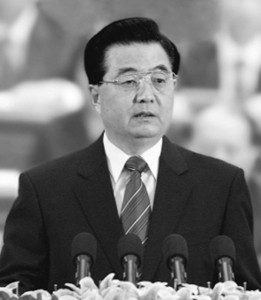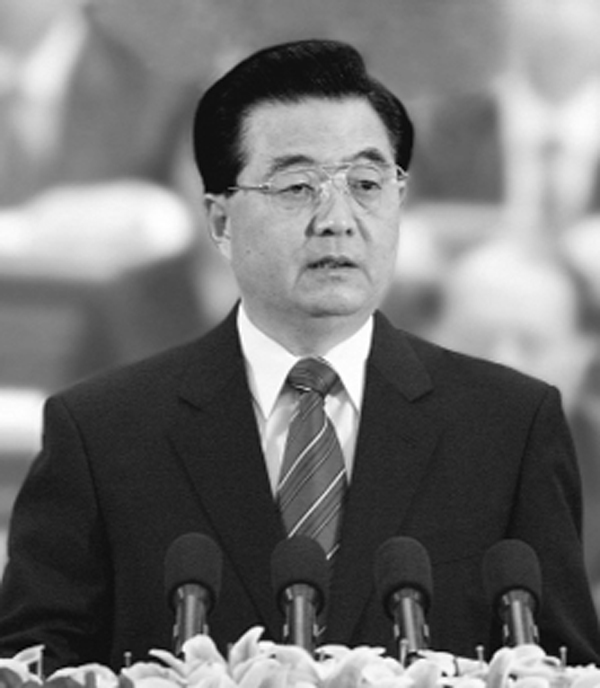Enter a new super-power to the region
When Jamaica’s Usain Bolt effortlessly won the one hundred metres in the August 2008 Beijing Olympics it became one of the defining moments of an event that cemented China’s global presence in the minds of hundreds of million’s around the world. That it involved a citizen of the Latin American and Caribbean provided an unexpected bonus to Beijing at a time when it was finalising its policy towards the region and Latin America.

In November, China released its first policy paper on Latin America and the Caribbean. It did so just days ahead of a Latin American tour by its President, Hu Jintao, aimed at deepening ties with the region. At that time the Chinese President visited Costa Rica, Cuba and Peru. Subsequently in February of this year the Chinese Vice President, Xi Jinping, visited Jamaica, Mexico, Colombia, Venezuela, Brazil and the Chinese Vice Premier, Hui Liangyu, travelled to Argentina, Ecuador, Barba-dos and the Bahamas. The timing and level at which the visits took place demonstrated China’s intent to fully engage in carefully differentiated ways in the hemisphere.
The policy paper, the first of its kind involving Latin America and the Caribbean had according to Yang Wanming, the Director-General of the Department of Latin American and Cari-bbean Affairs in the Chinese Foreign Ministry in Beijing taken a long time to prepare, draft and revise.
The extensive document is worth greater consideration than it was given in the region when published. It begins with the observation that the global move toward multi-polarity is irreversible. It goes on to make clear that as the largest developing country in the world, China is seeking to cooperate with all countries and regards improved relations with Latin American and the Caribbean as offering new opportunities.
China’s policy paper notes that its engagement is strategic and that it seeks to build a comprehensive partnership based on equality, mutual benefit and development with, as an underlying principle, a one China policy. In doing so it says it expects to “expand strategic common ground” and will show understanding and support on issues involving core interests and major concerns through economic cooperation and trade.
In practical terms the policy paper spells out that China wishes to develop high level political exchange, ex-changes between legislatures and political parties, establish consultation mechanisms and identify areas of co-operation in international affairs.
At an economic level the paper makes clear that China will seek to develop two-way trade and will support Chinese companies in investing in manufacturing, agriculture and services. It also identifies the possibility of co-operation on financial issues, agriculture, infrastructure, natural resources and energy, customs, debt reduction and cancellation, and through the provision of economic and technical assistance. It makes reference to helping south-south development and to encouraging commerce exchanges between business communities. There is language about culture, sports, science, technology, education, medical care, the media and many other areas.
Interestingly, in what appears to indicate a new global role, the policy paper also refers to military exchanges and a defence dialogue and cooperation with Latin American and Caribbean countries on a wide range of activities that “will enhance security co-operation at all levels.”
Placed in perspective, it is a statement of a super power willing to co-operate in virtually all aspects of relations with Latin America and the Caribbean that makes clear that the region can no longer be regarded as one in which the US government alone exercises influence.
Putting this policy into action in the Caribbean it would seem that China is now placing a major emphasis on developing its economic and other relations with the nations of Western Carib-bean.
As is well known, China has for a long time enjoyed a close relationship with Cuba that involves significant amounts of development assistance, trade − China is Cuba’s second biggest trading partner with bilateral trade standing at $2.3B in 2007 – investment, scientific co-operation and military exchange.
But Jamaica too has begun to be a prominent partner for China which recently provided some US$118M for technical and economic cooperation.
A new arrangement includes a cooperation agreement between the export-import banks of both countries that establishes a US$100M line of credit for short-term trade financing; a US$10M agreement for concessional financing between the Development Bank of Jamaica and the Chinese National Development Bank; a US$7.3M provision for technical and economic support; and a US$1.1M agreement for the provision of agricultural equipment and machinery.
In addition, agreements have been reached on technical and economic support in other areas, including tourism and the establishment of a Confucius Institute at the Mona Campus of the University of the West Indies, for the teaching of the Chinese language.
Speaking about the significance of the relationship Jamaica’s Prime Minister, Bruce Golding, said that other important public and private sector initiatives were under discussions and “that there were no limits to the extent to which cooperation between Jamaica and China might grow.”
In an indication of the growing depth of the relationship and his desire to develop an independent global foreign policy, the Jamaican Prime Minister also made clear that broader global issues have also been discussed. “It is quite clear to me that cooperation between Jamaica and China will move beyond just the parameters of bilateral arrangements, to seek to effect meaningful change to the global financial and economic arrangements,” he stated recently. Prime Minister Golding is expected to visit China later this year.
The Bahamas and China too have extended their bilateral cooperation with the signing of an economic and technical agreement that will make available some US$10M for projects. Both countries also agreed to a new framework for cooperation in agriculture and in other areas.
In Haiti, China is involved in peacekeeping but in the Dominican Republic where the ties between the Republic’s President and Taiwan remain strong, movement forward is expected to be slower.
China has become a major regional player. It is increasingly involved in providing finance for hemispheric institutions such as the Caribbean Development Bank and the Inter American Development Bank. Soon a moment will come when others outside the region will have to find ways to co-ordinate their development policies with those being delivered by Beijing.
Previous columns can be found at www.caribbean-council.org

